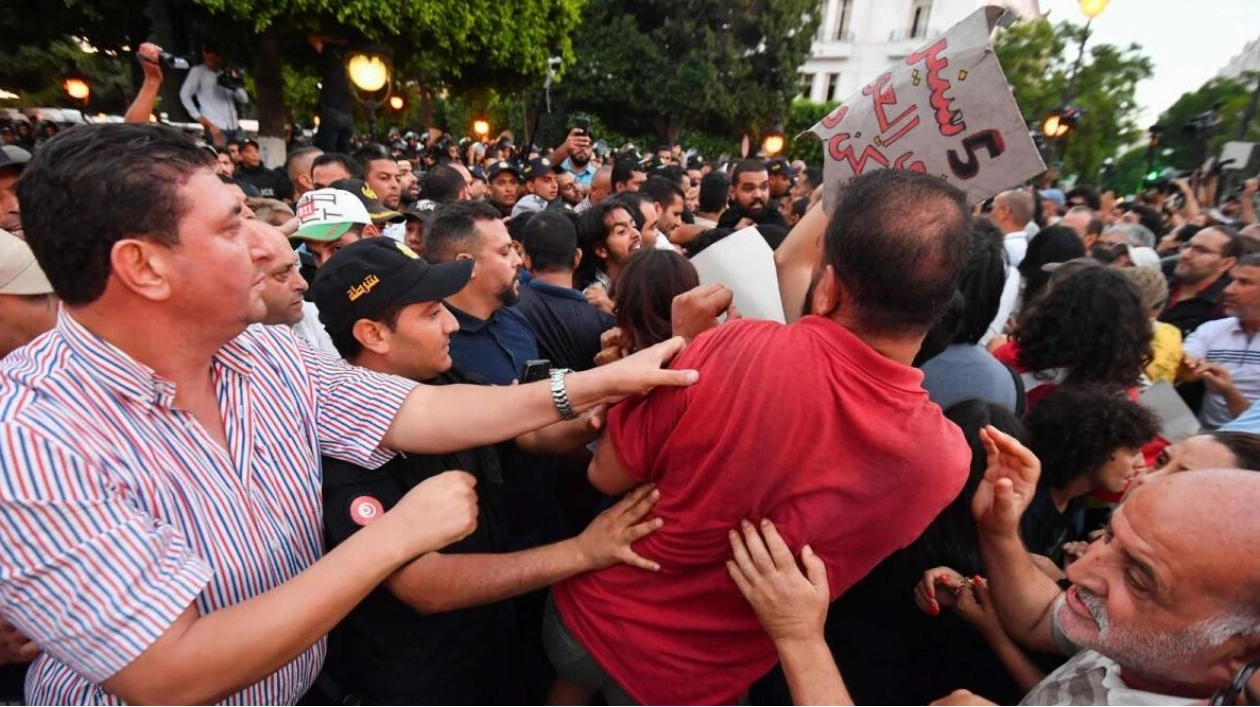In a bustling Tunisian cafe, a group of young men are engrossed in sports betting slips, their attention far from the presidential elections looming just days away. This scene reflects a widespread apathy in a nation where many dream of leaving. Mohamed, a 22-year-old who declined to provide his full name due to fear of retribution, told AFP that he and his friends see no point in voting. "We have nothing to do with politics," he said. "We just try to live day by day. It doesn't concern us."
According to official figures, nearly a third of the nearly 10 million Tunisians eligible to vote on Sunday are under 35. Yet, a recent study by the Arab Barometer reveals a sense of resignation among young people, with most preferring to emigrate. The study found that seven out of ten Tunisians aged 18 to 29 wish to leave the country. Tunisia now tops Arab nations in the desire to migrate, with an estimated 46% of the population wanting to live abroad.
Mohamed's sentiment is echoed by many. "If you provided three boats right now, no one here would stay," he said, glancing around the crowded cafe. Each year, thousands of Tunisians, predominantly young men, attempt the perilous journey to Europe in search of a better life. Others resort to overstaying tourist visas or enrolling in study-abroad programs.
The Arab Barometer's findings contrast sharply with the 22% recorded in 2011, the year a revolution ousted longtime dictator Zine El Abidine Ben Ali and sparked hope among young Tunisians. However, over a decade later, they face a stagnant economy, soaring unemployment, and dwindling rights. Official statistics show 41% of young Tunisians are unemployed, despite 23% holding university degrees.
Ghaith, a high-schooler who also withheld his last name out of fear, contemplates leaving. "I'm only 17, and when I see older people who haven't achieved much, I wonder what I will do," he said. His 19-year-old friend Mohamed dreams of learning German and moving to Berlin but finds the cost prohibitive. "This country has failed us," he told AFP. "It's hard to envision a future here."
The reluctance of these young people to disclose their full names stems from a government crackdown on dissent. President Saied, democratically elected in 2019, orchestrated a power grab in 2021, leading to what many view as a one-man rule. Human Rights Watch reports that over 170 people are detained in Tunisia for political reasons or exercising their fundamental rights. Critics have been prosecuted under Decree 54, enacted in 2022 to combat "false news."
Slim, a 31-year-old gig worker who also withheld his full name, feels Saied's anti-corruption efforts have not benefited him personally. "I like him," Slim said. "He fought corruption, but I haven't gained anything from it. What's the point if I still can't find basic necessities like eggs, milk, and coffee?"
Despite the exodus, some choose to stay. At a recent protest near parliament, Souhaieb Ferchichi, a 30-year-old activist, called for a boycott of the election, deemed unfair by rights groups. Many of Saied's challengers have been barred from running, with some even imprisoned. Salma Ezzine, a 25-year-old doctor and protester, believes Tunisia is repeating past mistakes. "This is how dictatorships are born," she said. Unlike the over 1,000 doctors who left Tunisia last year, Ezzine feels compelled to stay and contribute to the country's betterment. "Leaving can be a short-term solution," she said. "But people need to understand that it exacerbates the problem. If no one stays, who will drive change?"






